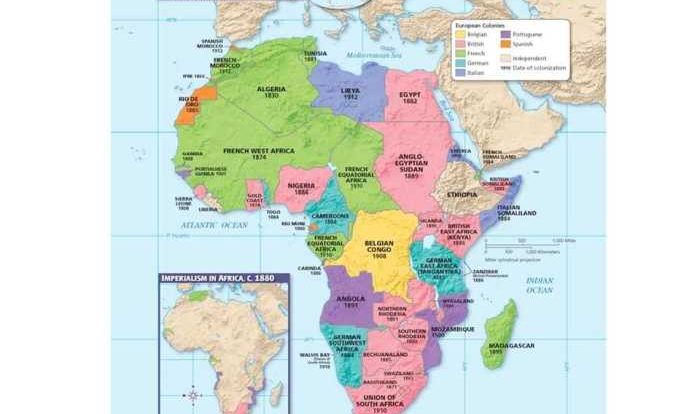Unit 5 – topic 5.2 atlantic revolutions comparison – Unit 5 – Topic 5.2: Atlantic Revolutions Comparison embarks on an enlightening exploration of pivotal revolutions that swept across the Atlantic world, shaping its political, social, and intellectual landscapes. This in-depth analysis delves into the causes, timelines, and impacts of these transformative events, providing a comprehensive understanding of their significance.
From the American and French Revolutions to the Haitian and Latin American Revolutions, this topic unravels the intricate connections and shared ideals that fueled these movements. By examining their impact on global politics, the spread of democratic principles, and the decline of colonialism, we gain insights into the profound legacies of these Atlantic Revolutions.
American Revolution and French Revolution: Unit 5 – Topic 5.2 Atlantic Revolutions Comparison
The American Revolution and the French Revolution were two of the most important events in world history. They both had a profound impact on their respective countries and on the world as a whole.
The American Revolution was fought between the American colonies and Great Britain. The colonists were unhappy with the way they were being treated by the British government. They felt that they were being taxed without representation and that they did not have a say in how they were governed.
The French Revolution was fought between the French people and the French monarchy. The people were unhappy with the way they were being treated by the monarchy. They felt that they were being taxed too heavily and that they did not have any say in how they were governed.
Both the American Revolution and the French Revolution were successful. The American colonies won their independence from Great Britain, and the French people overthrew the monarchy and established a republic.
Timeline of Key Events in the American Revolution
- 1775: The American Revolutionary War begins.
- 1776: The Declaration of Independence is adopted.
- 1781: The British surrender at Yorktown.
- 1783: The Treaty of Paris is signed, ending the war.
Timeline of Key Events in the French Revolution, Unit 5 – topic 5.2 atlantic revolutions comparison
- 1789: The Storming of the Bastille.
- 1792: The French monarchy is overthrown.
- 1793: The Reign of Terror begins.
- 1799: Napoleon Bonaparte seizes power.
Haitian Revolution and Latin American Revolutions
The Haitian Revolution and the Latin American Revolutions were two of the most important events in the history of the Americas. They both had a profound impact on their respective countries and on the world as a whole.
The Haitian Revolution was fought between the enslaved people of Haiti and the French government. The enslaved people were unhappy with the way they were being treated by the French government. They felt that they were being treated like animals and that they did not have any rights.
The Latin American Revolutions were fought between the people of Latin America and the Spanish government. The people of Latin America were unhappy with the way they were being treated by the Spanish government. They felt that they were being taxed too heavily and that they did not have any say in how they were governed.
Both the Haitian Revolution and the Latin American Revolutions were successful. The enslaved people of Haiti won their independence from France, and the people of Latin America won their independence from Spain.
Comparison of the Causes of the Haitian Revolution to the Causes of the Latin American Revolutions
- Both the Haitian Revolution and the Latin American Revolutions were caused by the people’s dissatisfaction with the way they were being treated by their governments.
- In both cases, the people felt that they were being taxed too heavily and that they did not have any say in how they were governed.
- However, there were also some key differences between the causes of the two revolutions.
- The Haitian Revolution was also caused by the people’s desire for freedom from slavery.
- The Latin American Revolutions were not primarily caused by slavery, although slavery was a factor in some of the revolutions.
Role of Slavery in the Haitian Revolution
Slavery was a major factor in the Haitian Revolution. The enslaved people of Haiti were treated very harshly by the French government. They were forced to work long hours in the fields and were often beaten and tortured.
The enslaved people of Haiti eventually revolted against the French government. They were led by Toussaint Louverture, a former slave who became a general in the Haitian army.
The Haitian Revolution was successful, and the enslaved people of Haiti won their independence from France. However, the revolution also led to the deaths of many people, both black and white.
Impact of the Haitian Revolution on the Latin American Revolutions
The Haitian Revolution had a significant impact on the Latin American Revolutions. The success of the Haitian Revolution showed the people of Latin America that it was possible to overthrow their colonial governments.
The Haitian Revolution also inspired the people of Latin America to fight for their independence. Many of the leaders of the Latin American Revolutions were inspired by the Haitian Revolution, and they used the Haitian Revolution as a model for their own revolutions.
Shared Ideals and Common Themes
The Atlantic Revolutions were all inspired by the same ideals. These ideals included liberty, equality, and democracy.
The Atlantic Revolutions also shared a number of common themes. These themes included the struggle against tyranny, the desire for self-government, and the belief in the power of the people.
These ideals and themes are reflected in the Declaration of Independence and other revolutionary documents.
Examples of How These Ideals and Themes Are Reflected in the Declaration of Independence
- The Declaration of Independence states that “all men are created equal.” This reflects the ideal of equality.
- The Declaration of Independence states that “governments are instituted among Men, deriving their just powers from the consent of the governed.” This reflects the ideal of self-government.
- The Declaration of Independence states that “We hold these truths to be self-evident, that all men are created equal, that they are endowed by their Creator with certain unalienable Rights, that among these are Life, Liberty and the pursuit of Happiness.”
This reflects the ideal of liberty.
Impact on Global Politics
The Atlantic Revolutions had a profound impact on global politics. They helped to spread the ideals of democracy and liberty around the world.
The Atlantic Revolutions also contributed to the decline of colonialism. The success of the American Revolution and the French Revolution showed the world that it was possible to overthrow colonial governments.
The Atlantic Revolutions also influenced the development of other revolutions around the world. The Russian Revolution and the Chinese Revolution were both inspired by the Atlantic Revolutions.
Examples of How the Revolutions Influenced the Development of Other Revolutions Around the World
- The Russian Revolution was inspired by the French Revolution. The Russian revolutionaries used the French Revolution as a model for their own revolution.
- The Chinese Revolution was inspired by the American Revolution. The Chinese revolutionaries used the American Revolution as a model for their own revolution.
FAQ Overview
What were the primary causes of the American Revolution?
The American Revolution was primarily driven by grievances against British colonial policies, including taxation without representation, restrictions on trade, and the presence of British troops.
How did the Haitian Revolution differ from other Atlantic Revolutions?
The Haitian Revolution was unique in its focus on the abolition of slavery and the establishment of a free and independent black republic.
What were the shared ideals that inspired the Atlantic Revolutions?
The Atlantic Revolutions were fueled by shared ideals of liberty, equality, self-determination, and the pursuit of happiness.

